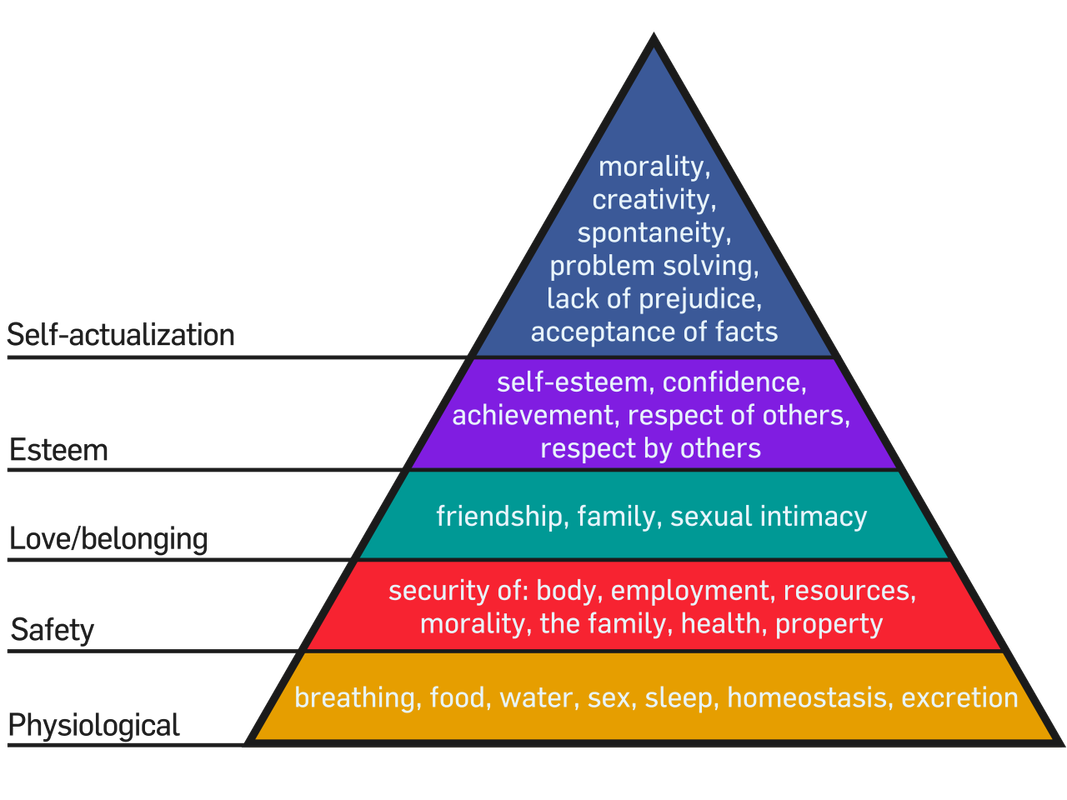Mindsets: Definition, Examples, and Books (Growth, Fixed + Other Types)What are mindsets (growth, fixed, positive, scarcity, etc...)? And how do you cultivate a mindset for success? Learn here about the science behind mindsets and how it can change your life.
*This page may include affiliate links; that means I earn from qualifying purchases of products.
What Is the Definition of Mindset?Mindset is defined as the set of attitudes or beliefs that we hold. Mindset is crucially important because our attitudes and beliefs affect everything we do, feel, think, and experience. Our mindset influences our perceptions and how we move through the world. Although we have one overall mindset, this can be made up of many smaller mindsets. Some of these help us improve our well-being and succeed in the world. Others hurt our ability to do so. That's why developing certain mindsets can greatly help us reach our goals, enjoy our lives, and be more successful. Here we'll talk about some of the most beneficial mindsets and how you can develop them.
Are You a Therapist, Coach, or Wellness Entrepreneur?
Grab Our Free eBook to Learn How to
|
|
Although the research on scarcity mindset is around poverty, there is no reason why it wouldn't apply to other areas of our lives.
If we are lacking other basic needs like safety, health, love & belonging, self-esteem, freedom, or respect, we may be similarly over-focused on the need that is unfulfilled, and we may focus less on ensuring our other needs are met in the future. |
Maslow's Hierarchy of Needs |
Some research even shows that time scarcity results in scarcity mindset. If we're really busy, we attend to urgent needs at the expense of longer-term needs. More specifically, busyness results in a crisis mentality—it leads people to resolve current crises while failing to prevent future ones. This results in a greater number of total crises because some could have been prevented (Perlow, 1999). So overall, scarcity mindset keeps up from focusing on how to have a better future.
Scarcity Mindset vs Abundance Mindset
As far as I can tell, the definition of abundance mindset came from the book, 7 Habits of Highly Effective People, and not from the research. The book says that an abundance mindset is in contrast to a scarcity mindset. It refers to the mindset that 'there is plenty for everybody', and it says that each of us can develop this mindset. But given the way I just described the research on scarcity mindset, this seems oversimplified.
Scarcity mindset comes about as a result of our circumstances and it becomes a cycle, feeding itself until it's resolved. Personally (and as someone who grew up in poverty), I don't think switching to an abundant mindset in the midst of a crisis is that simple. Further, deciding to shift to a mindset of abundance when we have bills to pay might, in fact, lead us to make bad decisions. We might buy something we can't afford or fail to pay the rent because we are not overly focused on our pressing needs. Basically, our emotions and attention are designed to help us. Overriding in the context of a crisis is potentially dangerous.
Scarcity mindset comes about as a result of our circumstances and it becomes a cycle, feeding itself until it's resolved. Personally (and as someone who grew up in poverty), I don't think switching to an abundant mindset in the midst of a crisis is that simple. Further, deciding to shift to a mindset of abundance when we have bills to pay might, in fact, lead us to make bad decisions. We might buy something we can't afford or fail to pay the rent because we are not overly focused on our pressing needs. Basically, our emotions and attention are designed to help us. Overriding in the context of a crisis is potentially dangerous.
Abundance Mindset
Where I think an abundance mindset can be helpful is when we are no longer in crisis situations. The more crises we experience, the more our brains can get stuck thinking in ways that have protected us in the past even if these thought patterns no longer benefit us. It's not helpful if we're no longer in poverty and we still constantly worry about paying the bills. It's not helpful if we've found a good romantic partner and still worry about them not loving us. It's not helpful if we've taken on a lighter schedule and still focus on managing crises instead of planning for the longer term. These are the times when an abundance mindset is likely called for.
When we've overcome challenges and stresses, we learned that our strategies worked for us. But now if we are in a lower-stress context the same strategies tend not to be the best ones. We need to realize that we are safe and our needs are being met so that we can focus on the future and how to ensure that our needs continue to be met.
When we've overcome challenges and stresses, we learned that our strategies worked for us. But now if we are in a lower-stress context the same strategies tend not to be the best ones. We need to realize that we are safe and our needs are being met so that we can focus on the future and how to ensure that our needs continue to be met.
Challenge Mindset vs Threat Mindset
Challenge and threat mindsets are thought to arise in performance situations like test-taking, game-playing, athletics, work tasks, and elsewhere. We can either evaluate these situations as a challenge that we can handle or a threat that might annihilate us.
This mindset is about how we evaluate the demands of the situation and our resources for coping with these demands. Resources may include skills, knowledge, abilities, dispositions (like positive self-esteem), and external support. Demands may include danger, uncertainty, and required effort (Blascovich et al., 2004). The thing is that most of these resources and demands are attitudes, perceptions, and other cognitions—things that we have the power to change.
By pushing ourselves to see our difficult circumstances as challenges that we can handle, we actually respond to these situations in ways that are more beneficial. A challenge mindset changes our physiology in ways that can make us more successful at the task (Blascovich et al., 2004).
Examples of a Challenge Mindset
This mindset is about how we evaluate the demands of the situation and our resources for coping with these demands. Resources may include skills, knowledge, abilities, dispositions (like positive self-esteem), and external support. Demands may include danger, uncertainty, and required effort (Blascovich et al., 2004). The thing is that most of these resources and demands are attitudes, perceptions, and other cognitions—things that we have the power to change.
By pushing ourselves to see our difficult circumstances as challenges that we can handle, we actually respond to these situations in ways that are more beneficial. A challenge mindset changes our physiology in ways that can make us more successful at the task (Blascovich et al., 2004).
Examples of a Challenge Mindset
- Yvonne might tell herself "I can do it!" when running a marathon.
- Alabaster might tell himself that "I can handle anything they throw at me," when work is getting nearly too intense to handle.
- Louise might believe that she has the skills to recover from her depression; she just has to keep at it.
Mindful Mindset
Most people talk about mindfulness as a state of being rather than a mindset, but mindfulness is a mental state and an approach to life so I agree with those who consider this a type of mindset. A mindful mindset involves being aware, open, and accepting (Carson & Langer, 2006). We make an effort to be present in the moment, to pay attention to the details of life, and to stay out of our heads whenever possible.
Mindless Mindset
A mindful mindset is in contrast to a mindless mindset. When we are mindless, we go from one thing to the next without understanding why. We don't pay attention to what's happening around us. And we may be caught up in worries about the past or the future. Shifting to a more mindful mindset can help us de-stress and enjoy life a bit more.
Books Related to Mindsets
To learn more about mindset, check out some of the most popular mindset books:
- Change Your Mind: Deprogram Your Subconscious Mind, Rewire the Brain, and Balance Your Energy
- Mindset: The New Psychology of Success
- Building a Millionaire Mindset: How to Use the Pillars of Entrepreneurship to Gain, Maintain, and Sustain Long-Lasting Wealth
- Mindset - Updated Edition: Changing The Way You think To Fulfil Your Potential
Articles Related to Mindsets
Want to learn more? Check out these articles:
Final Thoughts on Mindsets
When it comes to developing beneficial mindsets there are lots to choose from. Building a little bit of any of these mindsets can help you get on track towards achieving your goals and living the life you want.
Don't Forget to Grab Our Free eBook to Learn How to
Grow Your Wellness Business Exponentially!
References
- Blascovich, J., Seery, M. D., Mugridge, C. A., Norris, R. K., & Weisbuch, M. (2004). Predicting athletic performance from cardiovascular indexes of challenge and threat. Journal of Experimental Social Psychology, 40(5), 683-688.
- Carson, S. H., & Langer, E. J. (2006). Mindfulness and self-acceptance. Journal of rational-emotive and cognitive-behavior therapy, 24(1), 29-43.
- Dweck, C. S. (2009). Mindsets: Developing talent through a growth mindset. Olympic Coach, 21(1), 4-7.
- Dweck, C. (2015). Carol Dweck revisits the growth mindset. Education Week, 35(5), 20-24.
- Fredrickson, B. L. (2004). The broaden–and–build theory of positive emotions. Philosophical Transactions of the Royal Society of London. Series B: Biological Sciences, 359(1449), 1367-1377.
- Gold, T., & Rodriguez, S. (2018). Measuring entrepreneurial mindset in youth: Learning from NFTE’s Entrepreneurial Mindset Index. Network for Teaching Entrepreneurship.
- Perlow, L. A. (1999). The time famine: Toward a sociology of work time. Administrative science quarterly, 44(1), 57-81.
- Quoidbach, J., Mikolajczak, M., & Gross, J. J. (2015). Positive interventions: An emotion regulation perspective. Psychological bulletin, 141(3), 655.
- Shah, A. K., Mullainathan, S., & Shafir, E. (2012). Some consequences of having too little. Science, 338(6107), 682-685.
- Yeager, D. S., Hanselman, P., Walton, G. M., Murray, J. S., Crosnoe, R., Muller, C., ... & Paunesku, D. (2019). A national experiment reveals where a growth mindset improves achievement. Nature, 573(7774), 364-369.
Are You a Therapist, Coach, or Wellness Entrepreneur?
Grab Our Free eBook to Learn How to Grow Your Wellness Business Fast!
Key Articles:Content Packages:





